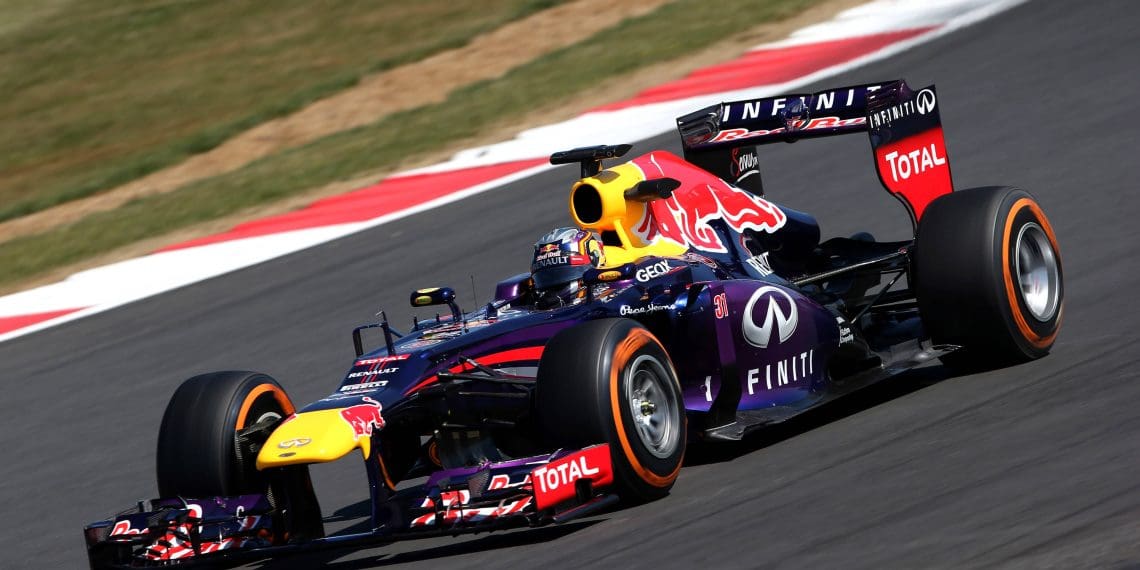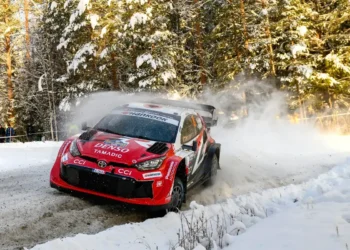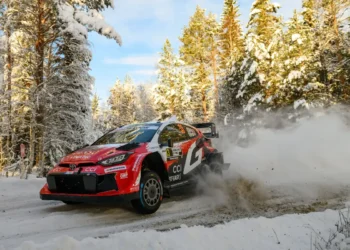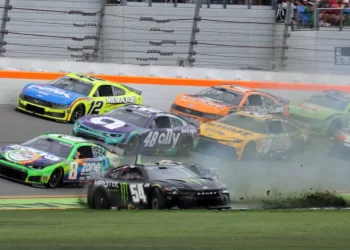The Red Bull-Renault alliance is a tale of immense success, bitter fallouts, and a hard-fought resurgence that eventually left the French manufacturer in the dust. What began as a mutually beneficial partnership in the mid-2000s culminated in an acrimonious divorce, underscoring the intense pressures of staying competitive in Formula 1.
The Glory Days: Four Titles and 59 Wins
Renault’s entry as Red Bull’s engine supplier in 2007 marked the beginning of one of the most successful partnerships in F1 history. From 2010 to 2013, Red Bull-Renault was untouchable. Sebastian Vettel and the Adrian Newey-designed chassis combined with Renault’s power unit to deliver four consecutive Constructors’ and Drivers’ Championships. The partnership earned 59 wins, setting Red Bull apart as one of F1’s modern dynasties.
Cracks Begin to Show
Even during their dominance, the cracks were evident. Red Bull frequently voiced frustrations about Renault’s lack of power compared to rivals like Ferrari and Mercedes. Renault, in turn, felt overshadowed, with its pivotal role in Red Bull’s success often underplayed.
Carlos Tavares, Renault’s COO at the time, vented in 2013: “We are frustrated by the lack of recognition we get for beating the likes of Ferrari and Mercedes.” This tension simmered beneath the surface, but the ultimate breaking point came with the introduction of the hybrid era.
The Hybrid Era Disaster
The 2014 season was a watershed moment for F1, with the introduction of 1.6-liter V6 turbo hybrid engines. Renault’s hybrid power unit was plagued with issues—underpowered, unreliable, and uncompetitive. Red Bull, having grown accustomed to winning, found itself in a desperate situation. Despite Daniel Ricciardo clinching three victories in 2014, the team was a shadow of its former self as Mercedes dominated.
Christian Horner publicly slammed Renault, declaring the performance and reliability “unacceptable.” Meanwhile, Adrian Newey began stepping back from his full-time role, disillusioned by the inability to compete with an engine that limited his design genius.
Public Spats and Fractures
By 2015, the relationship had reached rock bottom. Red Bull’s dissatisfaction boiled over into public criticism, with Horner accusing Renault of failing to deliver the promised upgrades. Renault, in turn, bristled at the constant jabs, insisting Red Bull’s rhetoric was damaging its reputation.
Efforts to involve engine guru Mario Illien (formerly of Mercedes and Ilmor Engineering) to salvage the situation only widened the gap. Renault declined Illien’s proposed upgrade package, further straining the already toxic relationship.
A Bitter Divorce
In a dramatic twist, Red Bull terminated its Renault contract for 2016, only to find itself without alternatives. Both Mercedes and Ferrari rejected proposals to supply Red Bull with equal-spec engines, while Honda’s struggles with McLaren made them an untenable choice. Forced to go back to Renault cap-in-hand, Red Bull rebranded the engines as “Tag Heuer” to distance itself from the failing partnership.
The Honda Resurrection
Red Bull’s transition to Honda in 2019 proved transformative. Unlike Renault, Honda embraced a more collaborative approach, accommodating Red Bull’s technical needs. The new partnership quickly bore fruit, with Max Verstappen winning the Austrian Grand Prix in just their ninth race together. By 2021, Honda-powered Red Bull dethroned Mercedes, beginning Verstappen’s era of dominance.
Renault’s Decline
Meanwhile, Renault’s F1 fortunes nosedived. Between 2016 and 2021, it mustered just one victory, a fortuitous win for Esteban Ocon at the 2021 Hungarian Grand Prix. Renault’s hybrid engine program never fully recovered, and the company announced plans to shut down its in-house engine operation by 2025, with Alpine becoming a Mercedes customer team.
The Legacy
The Red Bull-Renault partnership is remembered as much for its success as for its acrimony. While the pair conquered the F1 world together, their inability to maintain harmony during difficult times underscores the delicate balance of collaboration in motorsport.
For Red Bull, the switch to Honda was the ultimate vindication. For Renault, their glory days with Red Bull now seem like a distant memory, a high-water mark never reached again. As Max Verstappen continues to dominate, it’s clear that Red Bull’s bold decision to sever ties with Renault paved the way for its current era of supremacy.










